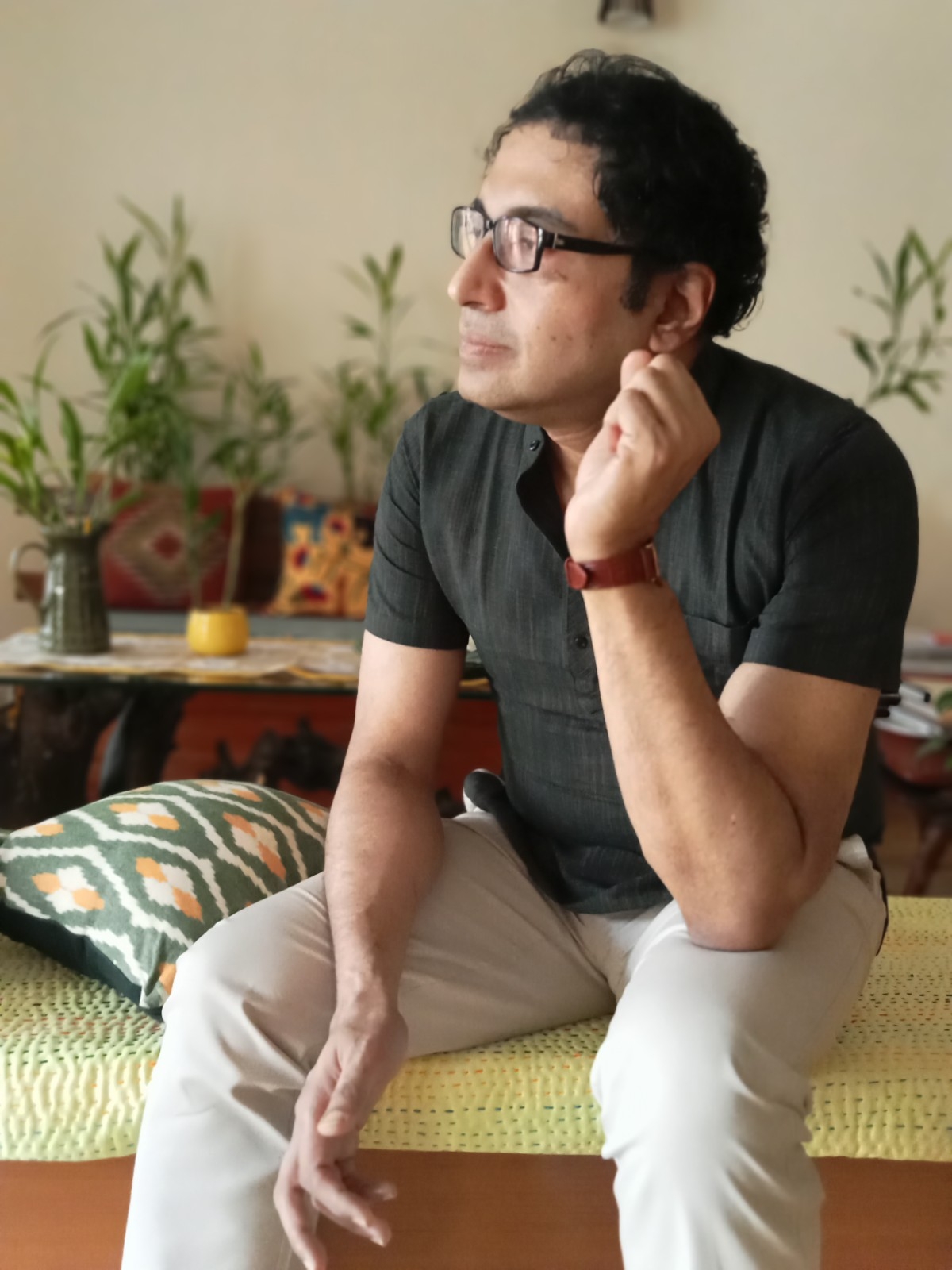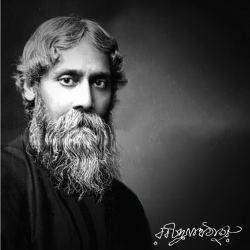 We are thrilled to announce that literary and cultural theorist, Ranjan Ghosh is the Tagore Visiting Scholar for 2024. Dr. Ghosh is an Indian academic and thinker who teaches at the Department of English, University of North Bengal, India. His wide-ranging scholarly work spans across the fields of comparative literature, comparative philosophy, philosophy of education, environmental humanities, critical and cultural theory, and Intellectual history. He has been an Alexander von Humboldt Fellow.
We are thrilled to announce that literary and cultural theorist, Ranjan Ghosh is the Tagore Visiting Scholar for 2024. Dr. Ghosh is an Indian academic and thinker who teaches at the Department of English, University of North Bengal, India. His wide-ranging scholarly work spans across the fields of comparative literature, comparative philosophy, philosophy of education, environmental humanities, critical and cultural theory, and Intellectual history. He has been an Alexander von Humboldt Fellow.
Dr. Ghosh will lead the Tagore Program's third Spring Institute titled, Plastic Tagore: Thinking After Yesterday. It will be based on his forthcoming book, Plastic Tagore (Oxford University Press), and will bring Prof. Ghosh's wide-ranging work on the idea of plasticity into conversation with Tagore's thought. The five sessions are closed to the public however the closing Tagore Lecture by Dr. Ghosh, Tagore in the Age of Anthropocene: Plastic Nature, on Fri, Apr 26, 2024, from 9-10:30 a.m. PST on Zoom, is open to all.
SCHEDULE OF SEMINARS + READINGS
All sessions from 9-10:30 am PST. (Calculate Your Local Time HERE)
- Mon, Apr 15: Is Tagore a Plastic Kavi? Understanding Tagore, the Philosophy of Plasticity and Plastic Art
- Readings:
- Tagore, Rabindranath. On Art and Aesthetics: A Selection of Lectures, Essays and Letters (Orient Longmans, 1961). Chapters: What is Art?, Art and Tradition, and Religion of the Artist (Link to ebook)
- Tagore, Rabindranath. On Art and Aesthetics: A Selection of Lectures, Essays and Letters (Orient Longmans, 1961). Chapters: What is Art?, Art and Tradition, and Religion of the Artist (Link to ebook)
- Readings:
- Wed, Apr 17: Plastic Pedagogy I: Aesthetic Education and Paedosophy
- Readings:
- Mukherjee, Himangshu Bhushan. Education for Fullness. (London: Asia Publishing House, 1962), Chapter 7 (Link to ebook)
- Tagore, Rabindranath. Towards Universal Man. (London: Asia Publishing House, 1961), Chapter: Hindu University (Link to ebook)
- Readings:
- Fri, Apr 19: Plastic Pedagogy II: the idea of University and the Politics of Counter Education
- Readings:
- Mukherjee, Himangshu Bhushan. Education for Fullness. (London: Asia Publishing House, 1962), Chapter 9 (Link to ebook)
- Tagore, Rabindranath. Towards Universal Man. (London: Asia Publishing House, 1961), Chapter: A Poet’s School (Link to ebook)
- Readings:
- Mon, Apr 22: Tagore, World Literature and Plastic Theory
- Readings:
- Tagore, Rabindranath. Visva Sāhitya. Translated by Rijula Das and Makarand R. Paranjape. Journal of Contemporary Thought 34 (2011): 277-288. (Link to ebook)
- Sisir Kumar Ghose (ed.) Angel of Surplus: Some Essays and Addresses on Aesthetics, Rabindranath Tagore, Chapters: The Philosophy of Literature, and The Principle of Literature (Link to ebook)
- Readings:
- Wed, Apr 24: Is Tagore a Poet-Historian? Reflections on the Idea of History
- Readings:
- Guha, Ranajit. History at the Limit of World-History. (New Delhi: Oxford University Press, 2003), Chapters: Historicality in Literature, pages 95-99. (Link to ebook)
- Sabyasachi Bhattacharya, ‘Tagore’s View of History’ in The Cambridge Companion to Rabindranath Tagore (ed.) Sukanta Chaudhuri, pages 268-278. (Link to ebook)
- Readings:
- Fri, Apr 26: Tagore Lecture for 2024: Tagore in the Age of Anthropocene: Plastic Nature
BASICS
- Dates: Apr 15-26, 2023
- Location: Institute for South Asia Studies, UC Berkeley (via Zoom)
- Application Deadline: February 22, 2024
- Decisions Announced: March 15, 2024
- Participants: Graduate and advanced undergraduate students. Capped at 25.
- Primary Audience: UC Berkeley students will be prioritized
- The course is free for participants.
- The final lecture is free and open to the public.
EXPECTATIONS & PROGRAM DETAILS
- This program will be an intensive dive into Rabindranath Tagore Studies. In order to foster a rich, engaging, accessible program, participants will be expected to attend all sessions, complete all program readings in a timely manner, and actively participate in the discussions
- At the conclusion of the program, each participant will be expected to complete a program evaluation.
- A Certificate of Completion will be issued by the Institute for South Asia Studies upon successful completion of the Spring Institute.
Click HERE to apply
Application Deadline: February 22, 2024
The Spring Institute has been made possible in part by a major gift by Drs. Maya and Sakti Das.
Professor Ranjan Ghosh teaches in the Department of English, University of North Bengal. His many books include Thinking Literature across Continents (Duke University Press, 2016, with J Hillis Miller), Philosophy and Poetry: Continental Perspectives ed. (Columbia University Press, 2019), Plastic Tagore (Oxford University Press, forthcoming) and the trilogy that he is completing to establish the discipline of plastic humanities: The Plastic Turn (Cornell University Press, 2022), Plastic Figures (Cornell University Press, 2024, forthcoming) and Plastic Literature (forthcoming).
Please email Puneeta Kala at pkala@berkeley.edu if you have any questions.

